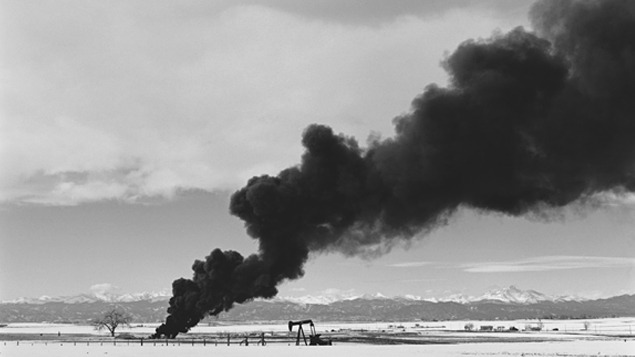Humans rarely appear in the photographs on view in this exhibition, yet their presence is undeniable. In these photographs, drawn from the permanent collection of the Nevada Museum of Art, photographers reveal the ways that individuals and industries have marked, mined, toured, tested, developed, occupied, and exploited landscapes over the last fifty years. While the images take various approaches, together they offer a panoramic sweep of the contentious social and political debates that have shaped contemporary discourse on the changing environment. Both cautionary and confessional, they also define challenges facing our global future.
Much has been written recently about landscape photography’s paradigm shift in the 1970s and the integration of the medium into larger arenas of contemporary art. In an effort to depart from idealized notions of scenic beauty and the romantic sensibilities of modern nature photography, a small group of photographers working mostly in the American West turned their cameras toward everyday, mundane landscapes. These image-makers, referred to now as the New Topographic photographers, made works that framed industrial structures, suburban developments, and other ordinary subjects with unprecedented matter-of-fact realism. Around the same time, practitioners of the Dusseldorf School pushed the technical limits of photography in their production of large-format color images that were globally oriented toward revisionist interpretations of social space. Both groups inspired artists around the world, who adopted their photographic strategies and visual vocabularies to make images that revealed landscapes as suitable places for social and political inquiry.
The Altered Landscape Photography Collection is the largest focus collection of the Nevada Museum of Art permanent collection. Since its establishment in the early 1990s, the collection has included images that address and engage issues related to land use and the changing landscape. In 1998 an endowment for Altered Landscape acquisitions was established through the generosity of the Carol Franc Buck Foundation.
